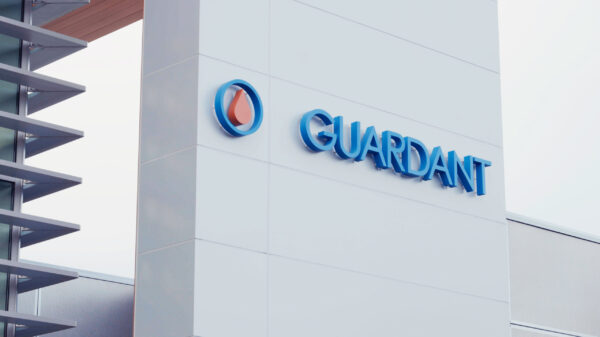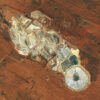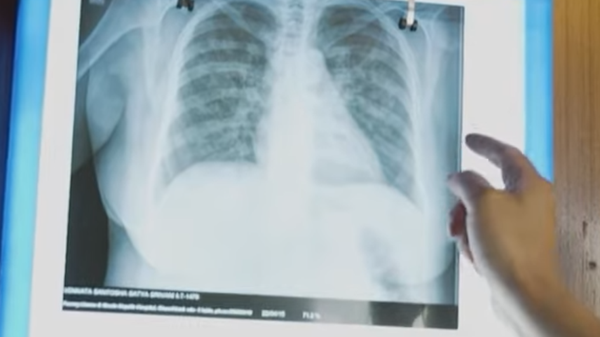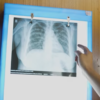Canadians now have another option to help with early cancer diagnosis.
It’s called the Galleri test and it’s now available in Canada through Wellness Haus, a private Toronto-based clinic. The price tag is roughly CAD$2,099.
The Galleri test is a multi-cancer early detection (MCED) blood test developed by the biotechnology company Grail Inc (NASDAQ: GRAL). It detects more than 50 types of cancer through a single blood draw, focusing on types of the disease that currently lack effective screening options.
“The Galleri test has been on my radar for years because I’ve had several patients go to the U.S. to get it done there,” said Dr Melissa Hershberg, medical director of Wellness Haus.
Furthermore, about 50 patients had taken the test in the three months since her clinic started offering it.
The test looks for specific DNA methylation patterns in cell-free DNA circulating in the blood, which can indicate the presence of cancer and predict the tissue of origin.
The Galleri test works by analyzing DNA fragments shed by cancer cells into the bloodstream. It uses advanced sequencing and machine learning to compare these DNA patterns against a database, searching for disease-specific signals.
If the test detects a cancer signal, it can predict where in the body the cancer might be located. Doctors can then take further diagnostic steps. However, it’s crucial to understand that a positive result from Galleri is not a cancer diagnosis but a signal that further diagnostic evaluation is needed.
Read more: Breath Diagnostics onboards new president and closes critical financing
Read more: Cross Country Healthcare jumps spike over 60% on merger news
Test’s sensitivity varies by cancer type and stage
Clinical studies like the PATHFINDER study have shown that Galleri has a high specificity, with a false positive rate of about 0.5 per cent. This means that out of 200 people without cancer, only one person would receive a false positive result.
Furthermore, the test’s sensitivity varies by cancer type and stage, with better performance in detecting the disease at later stages compared to very early stages. For instance, it’s more effective at identifying stage IV cancers than stage I, although it still manages to detect some early-stage cancers.
Galleri detects cancers early, aiming to identify them before symptoms appear and enabling earlier intervention with better treatment outcomes. Designed to complement traditional screening methods, it works alongside existing approaches to potentially increase the overall cancer detection rate.
Grail-funded clinical trials, published in peer-reviewed medical journals, demonstrate that the Galleri test detects a cancer DNA signal in about one to 1.5 per cent of people within the recommended age group.
However, a positive result does not identify the specific type of cancer, requiring further scans and procedures to determine the diagnosis. False positives remain a challenge; a 2023 Lancet study led by Grail scientists revealed that follow-up tests failed to detect cancer in 62 per cent of individuals who received a positive signal from the Galleri test.
Read more: Breath Diagnostics pioneers novel lung cancer breath test
Read more: Breath Diagnostics takes aim at lung cancer with One Breath
UK trial involves 140,000 participants
Its sensitivity decreases for earlier cancer stages, raising concerns about its effectiveness during the most critical periods for intervention. Debate continues about the test’s clinical utility, with some research suggesting it may not significantly reduce stage IV cancer diagnoses as anticipated.
Currently, the NHS-Galleri trial in the UK involves 140,000 participants and aims to evaluate the test’s ability to detect cancer at earlier stages among asymptomatic individuals.
The Galleri test has not yet recieved FDA clearance or approval. The FDA, however, has granted the test a Beakthrough Device designation, recognizing its potential to significantly improve cancer detection.
Another study, this one performed in 2020, evaluated Galleri’s sensitivity by testing how effectively it detected DNA signals in individuals already diagnosed with cancer. Researchers tested 2,482 patients and found that Galleri identified 18 per cent of Stage 1 cancers and 43 per cent of Stage 2 cancers. Detection rates increased significantly at later stages, with the test identifying 81 per cent of Stage 3 cancers and 93 per cent of Stage 4 cancers.
Grail’s co-founders named the company because they believed a blood test like Galleri could be the Holy Grail of cancer screening.
Despite this ambition, the company emphasizes that the test does not replace any existing routine cancer screenings recommended by doctors, such as mammograms for breast cancer, pap smears for cervical cancer, or fecal immunochemical tests (FIT), also known as the at-home poo test, for colorectal cancer.
.














